Being health-conscious is fast becoming the new norm. A lot of people are now more intentional about getting enough sleep, eating healthy, exercising, having a healthy skincare routine, and even the drinks they consume, all in a bid to be a healthier version of themselves. This is obvious even in the popular challenge of going for a period of time without taking soda. If this is the case and you do not want to deal with that familiar fizz of soda anymore, well, congratulations. The vast continent of Africa offers a variety of healthy and refreshing alternatives that can quench your thirst and get your taste buds to say their thank yous. This article will explore a variety of healthy African traditional drinks you can take instead of soda.
Healthy African Drinks to Take Instead of Soda
Here are some African traditional drinks you should include in your diet as you ditch soda:
1. Mazagran
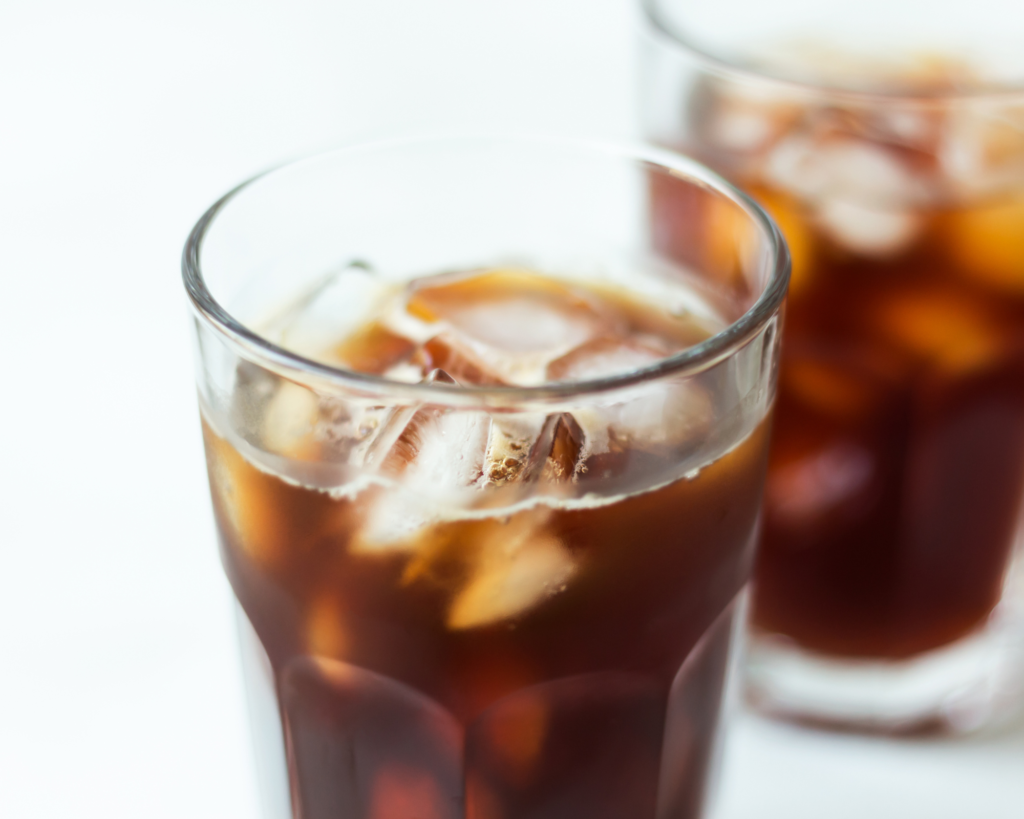
Mazagran, often referred to as the “original ice coffee,” is an Algerian drink combination of coffee and ice. The beverage is typically served in a tall, thin glass made from porcelain or clay. Research shows that the name Mazagra comes from a port city in Algeria that France received as part of the Treaty of Tafna in 1837. The actual place where the drink originated is unknown. However, it is generally accepted that the French troops stationed at Mazagran used to drink a similar combination of coffee and water to beat the heat and restore strength because sugar and water were not readily accessible.
2. Zobo
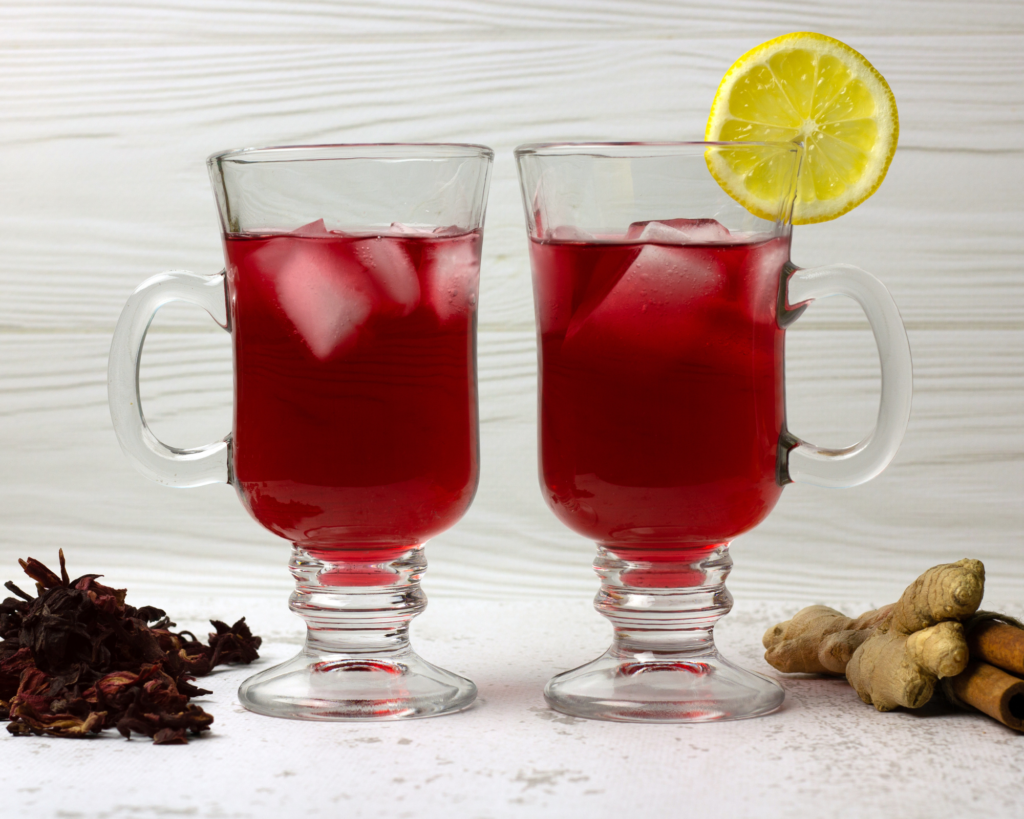
Zobo, also known as hibiscus tea, is a crimson, tangy delight that hails from West Africa. Made from the dried petals of the hibiscus flower, this drink is not only a feast for the eyes but also a powerhouse of health benefits. Its refreshing, slightly tart flavour makes it a great alternative to soda. Hibiscus tea is rich in vitamin C, antioxidants, and minerals, making it a superb choice for maintaining healthy skin, reducing blood pressure, and supporting your immune system. For a zesty twist, try adding ginger, cloves, and a dash of lemon to your Zobo. The name changes depending on the country; in the Caribbean, it is called sorrel, while in Sudan, it is called karkade.
3. Rooibos Iced Tea: “Red Bush” Tea
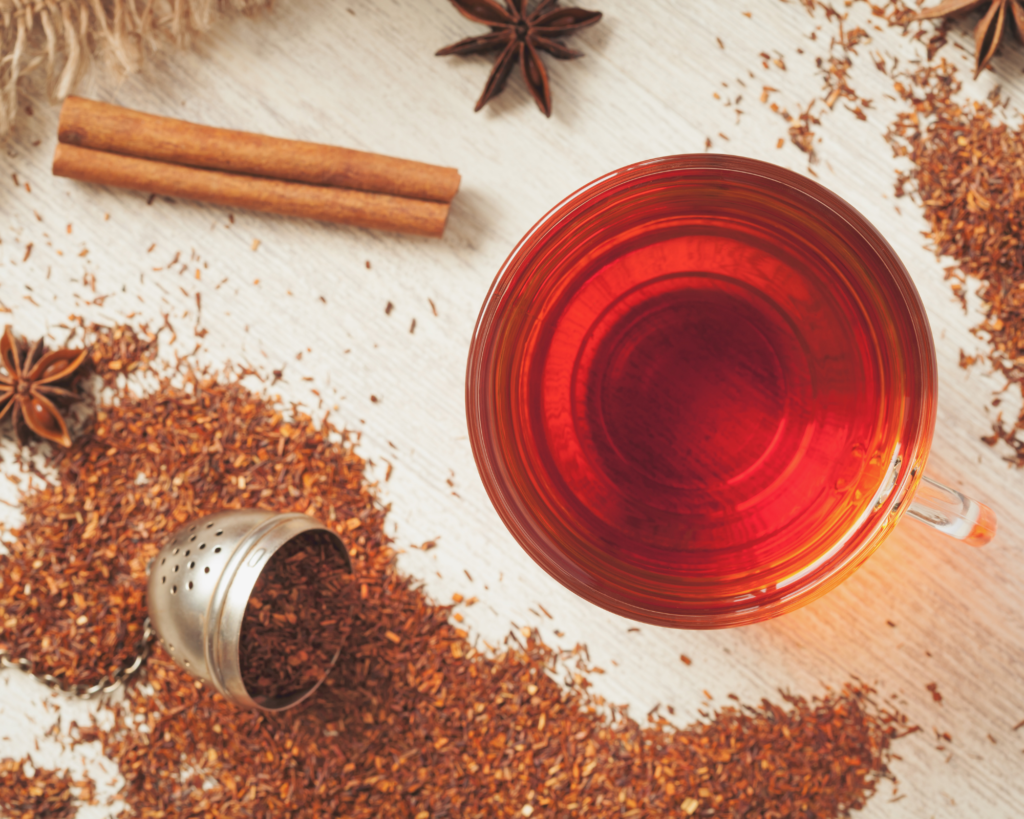
Hailing from South Africa, Rooibos, often referred to as “Red Bush” tea, is a herbal drink that is naturally caffeine-free and low in tannins. The name rooibos means red bush, which is a plant with leaves used for brewing tea. It has a unique nutty and earthy flavour, which can be enjoyed hot or iced. Rooibos tea used to be a cheaper alternative to European black tea. Rooibos is rich in antioxidants for anti-ageing, including aspalathin and quercetin, making it an excellent choice for promoting heart health and overall well-being. A glass of iced Rooibos tea with a touch of honey and lemon can be a rejuvenating substitute for soda on a hot day.
4. Café Touba
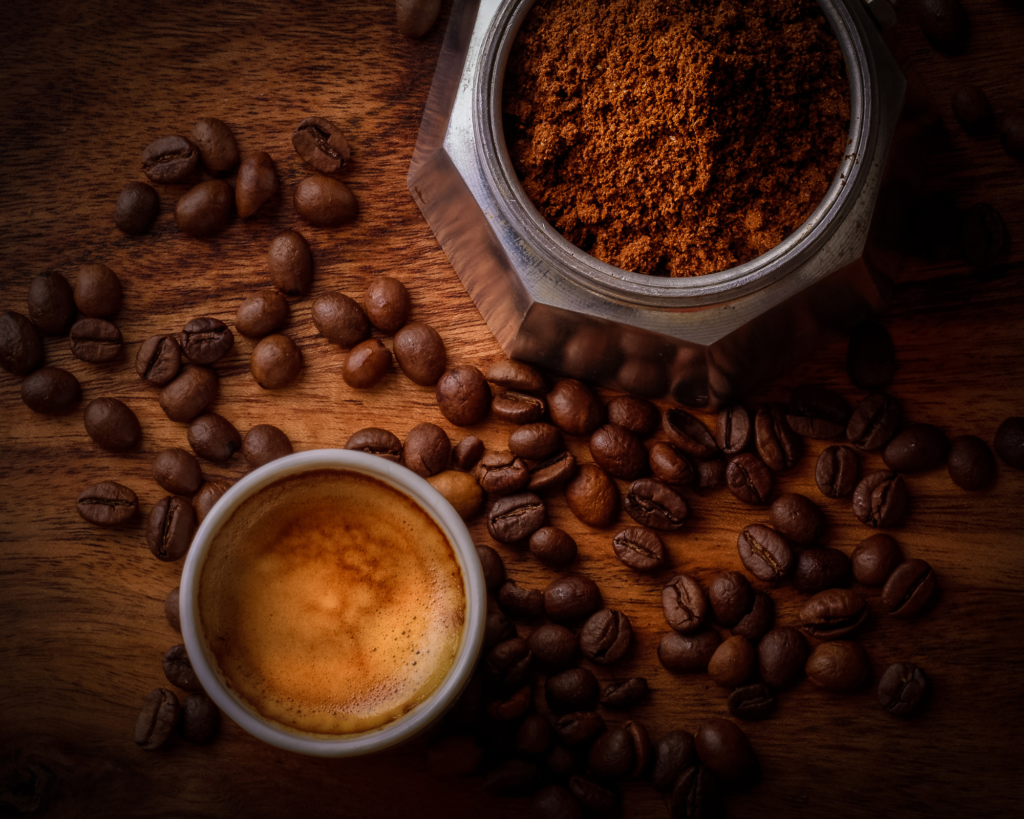
The Café Touba drink from Senegal is a hot, peppery coffee. The beverage is made from a combination of roasted and ground coffee beans and selim, which is a combination of Guinea pepper, Kani pepper, Kili pepper, or djar. The selim spice is usually used in place of pepper in the preparation of coffee. I bet you are interested in learning about other African aromatic spices and blends. Cloves are often an ingredient in the mixture of this drink. The coffee is made from the ground powder of the spices by using a filter and then poured between two containers several times so that the coffee is aerated and frothed. Milk is not added, and the drink is sweetened to taste. The drink has become a part of everyday life in Senegal and is easily found at street stalls (tanganas).
Research shows that the Sufi Mouride Brotherhood’s Cheikh Amadou Bamba Mbacke, who also founded the city of Touba, created the beverage. The coffee was taken by participants largely because of its medicinal properties and to keep them awake.
5. Maghrebi Mint Tea
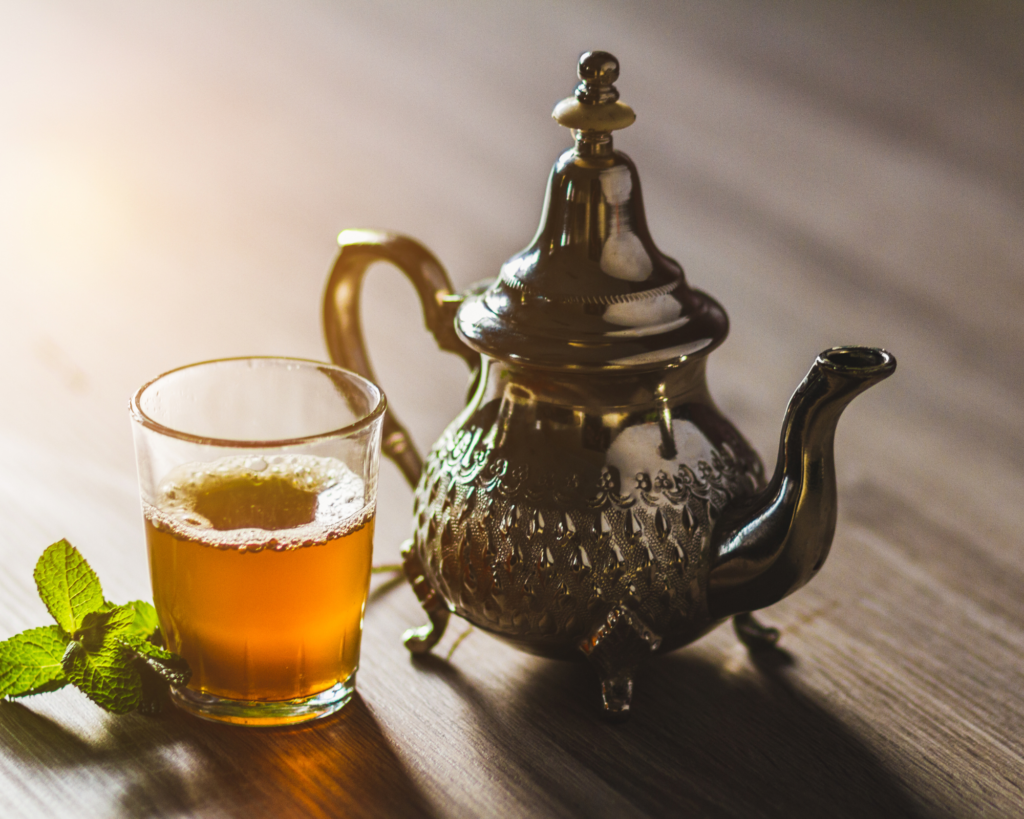
The Maghrebi mint tea is common among the people of Morocco. The heavily sweetened drink is a special blend of green tea and fresh spearmint. It is often prepared in traditional Berrad teapots, in which the tea is first steeped to produce the so-called spirit that is saved for later use. The leaves are washed and then brewed, after which the tea spirit and water are added.
Conclusion
African beverages offer a variety of flavorful drinks that can easily replace soda in your daily routine. These drinks are delicious and packed with essential vitamins, minerals, and antioxidants that promote overall well-being. So, before you reach for that can of soda next time, consider these refreshing and healthy alternatives from Africa that can make your daily hydration even healthier. Cheers to a healthier you!











